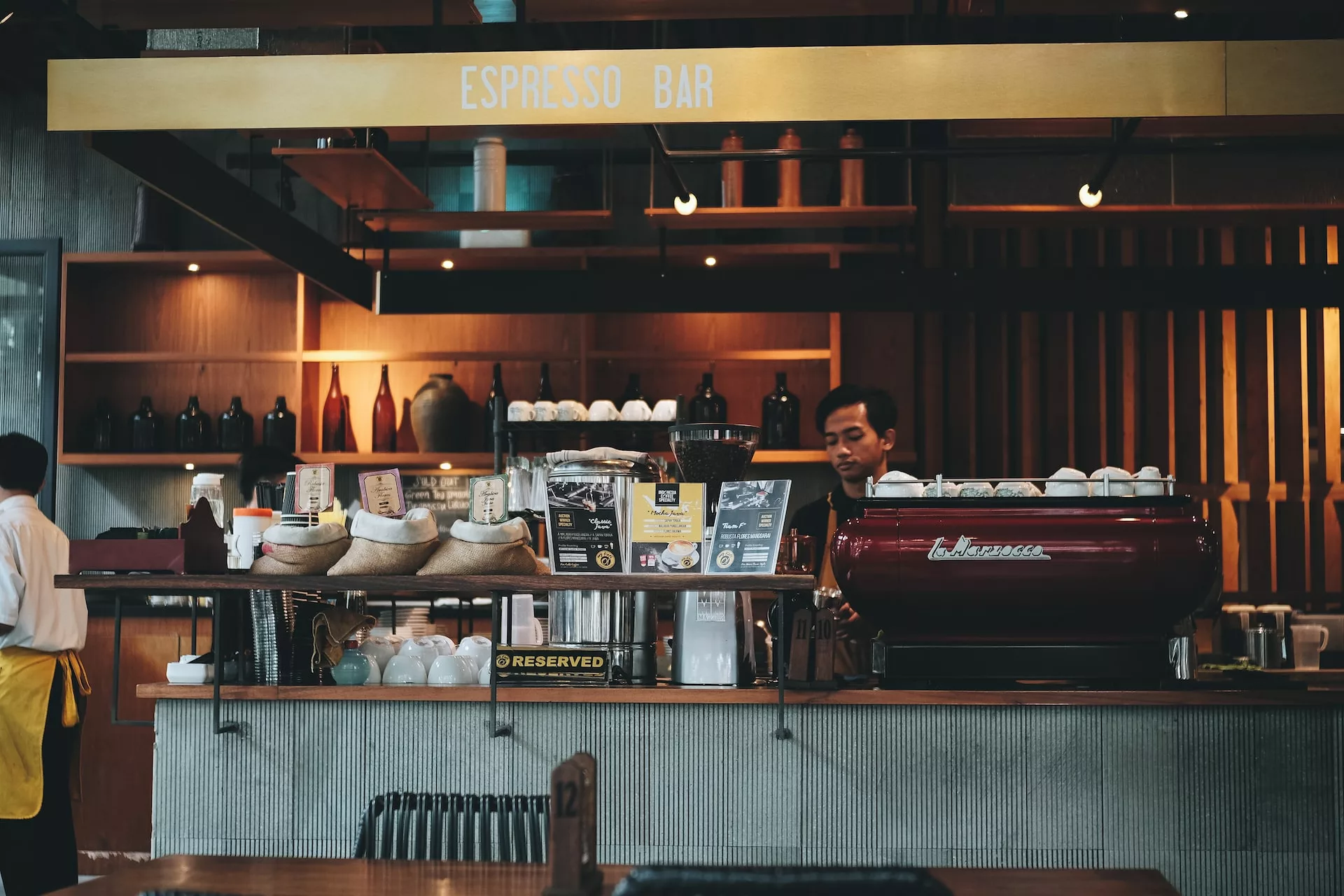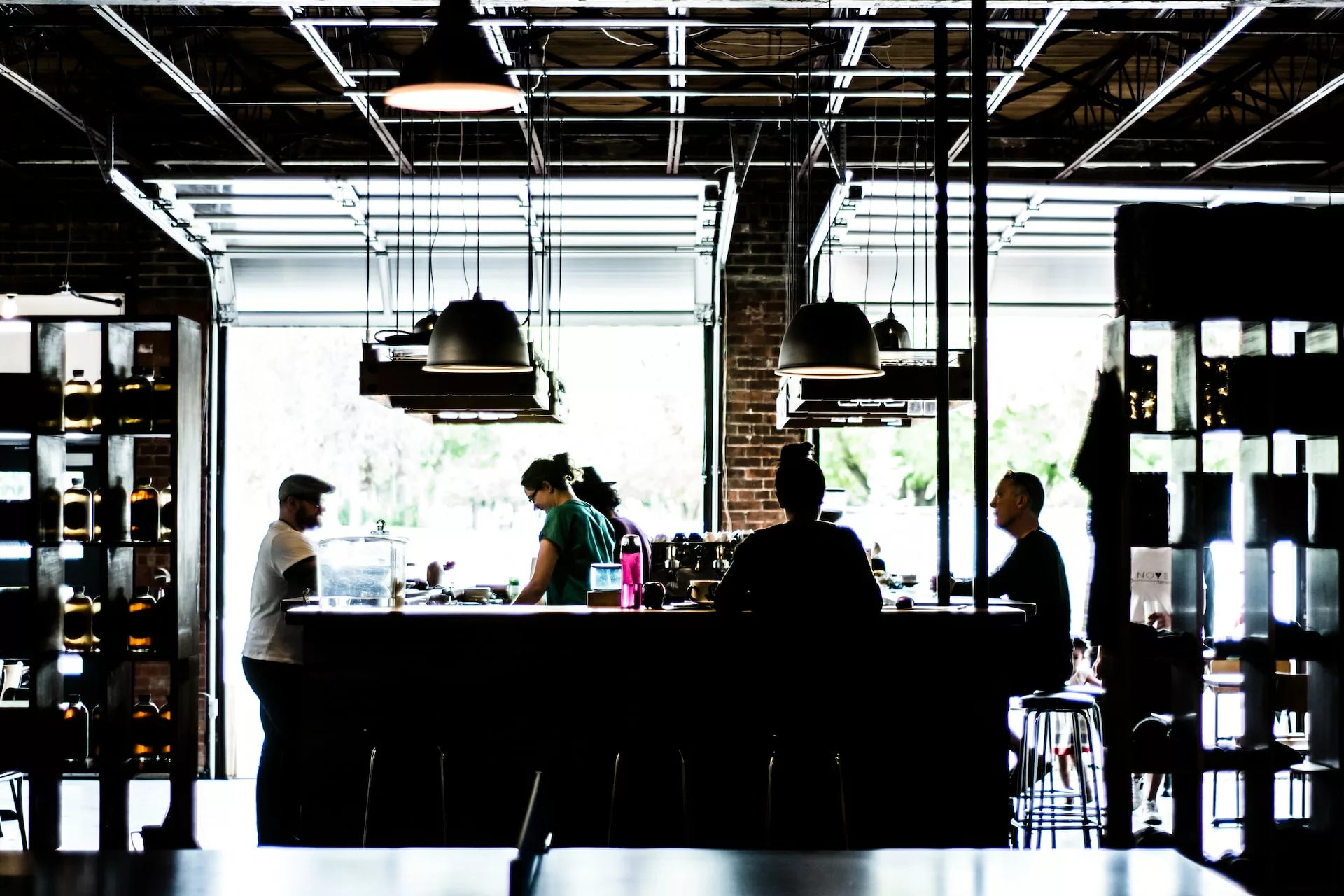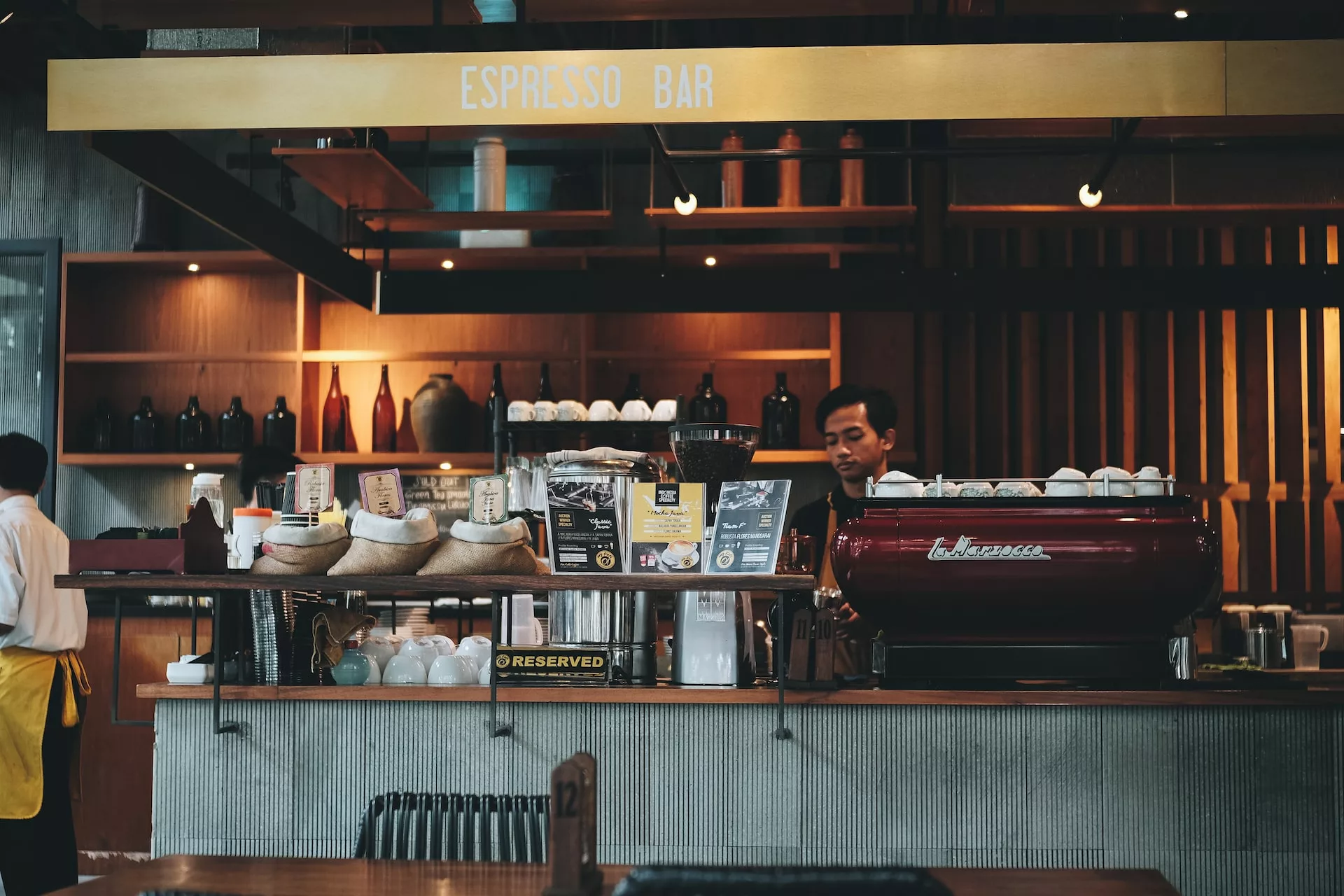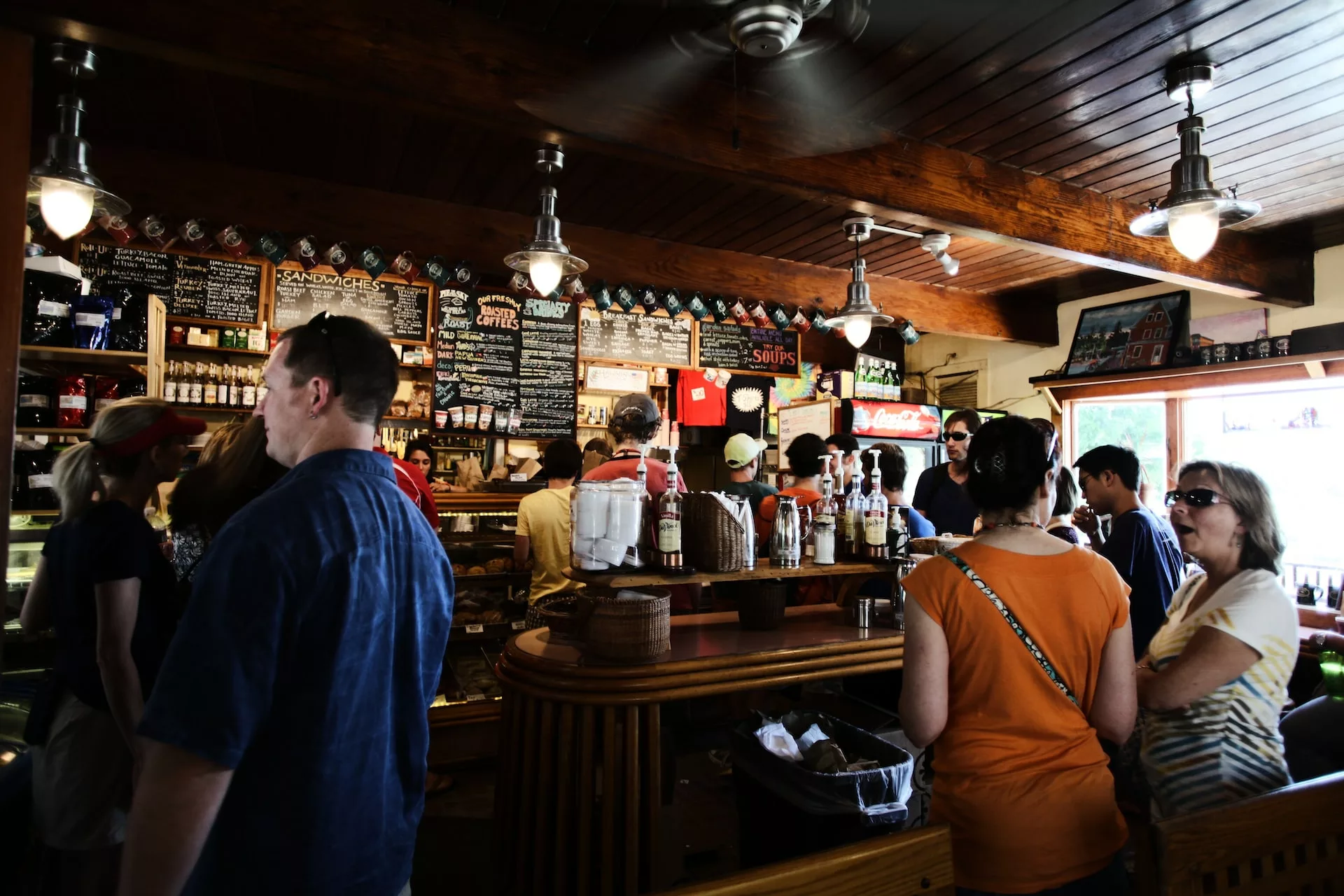Do you own a coffee shop and want to make sure it’s set up properly for success? Many business owners struggle with choosing the right type of corporation for their business. While each structure is unique, deciding which one aligns best with your goals can be overwhelming. In this blog post, we’ll go over the different types of corporations available (C Corp, S Corp, LLC) and discuss their advantages and disadvantages so you can choose the corporate structure that’s right for your coffee shop.
What is a C Corp, S Corp, and LLC
Starting a business as a coffee shop requires deciding how your business will be structured. This can involve choosing between three of the most popular structures: C Corps, S Corps and LLCs. When it comes to establishing a coffee shop, understanding what each type of business structure represents is an important step in defining the future success of your venture.
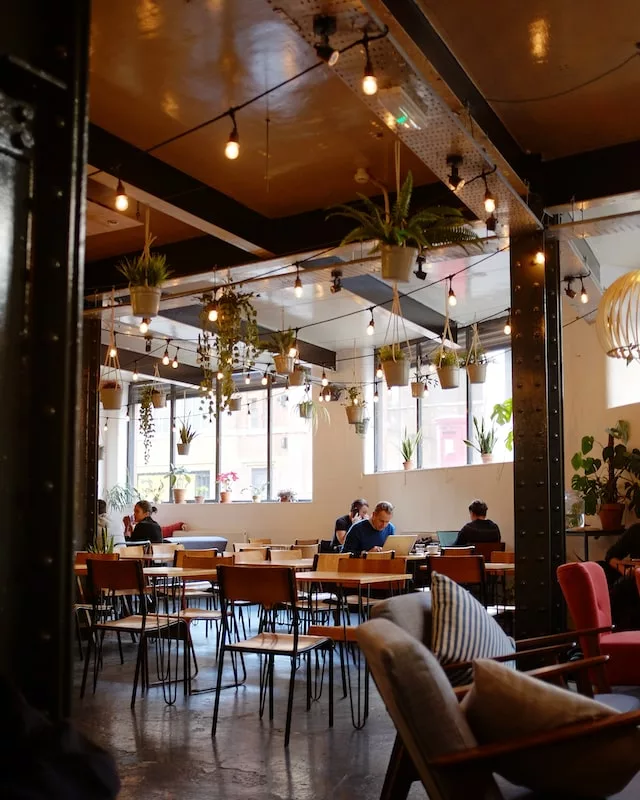
C Corp is one of the oldest forms of business structure and remains one of the most commonly used today. They are separate legal entities from their owners, meaning that they are treated like any other corporation with regards to taxes and liabilities. The benefits afforded by this structure include limited liability protection for its owners, unlimited potential for growth and attractive financing options.
S Corps provide much of the same benefits as C Corps, but with some added advantages specific to small businesses. In addition to limited liability protection, S Corporations enjoy more favorable tax treatments such as pass-through taxation status and avoidance of double taxation on dividends paid out to shareholders.
Finally LLCs—or Limited Liability Companies—are a hybrid form of legal entity that provide some advantages specific to certain startups such as coffee shops. LLC’s offer ease of formation and compliance with minimal paperwork required; even more so than both C Corps or S Corps do. On top of that, the owners or members receive pass-through taxation treatment similar to that enjoyed by S Corporations (which means only profits earned by the business being taxed once). Additionally, LLC’s don’t need board meetings or large amounts of paperwork normally associated with corporations as well as shareholders not being able to personally liable beyond their investment in the company itself should it fail or get sued.
When trying starting an up a coffee shop it’s important too weigh all options when it comes to what type of legal entity you want for your business venture: A C Corporation offers attractive financing options and limited liability protection; an S Corporation provides extra tax benefits not found in C Corps; while LLCs offer minimal paperwork requirements plus single taxation status and members not being personally liable beyond their investments into the company should it fail or get sued in court.. Every option brings something unique to table–taking time evaluate which makes sense for your particular needs can make all difference once you dive into running day-to-day operations at your new establishment whether you’re located downtown or in a suburban strip mall location!
The benefits of a C Corp
C corps are a popular legal structure for small businesses, including coffee shops. The C corporation tax structure offers certain advantages that make it well suited for such companies.
One of the primary benefits of a C corp is its ability to raise capital. A C corp can issue stock to investors and leverage the money raised in order to expand the business or take advantage of other opportunities. It’s also easier for a publicly traded company (which most C corps become) to attract top talent, as some individuals prefer to receive stocks instead of regular wages.
A C corp also offers limited liability protection, as ownership is separated from personal responsibility in most cases. This means that if anything happens with the company’s activities-like debts or lawsuits-the owners are not personally liable. This can offer a great degree of comfort when running a business, especially one as competitive as a coffee shop.
The tax treatment offered by a C corporation is another strong benefit. Depending on how much profit the business makes, it may be possible to reduce taxes through deductions on expenses like health insurance, office space rental and employee bonus plans. Plus, any dividends paid out to shareholders are taxed at favorable rates compared with other corporate structures like partnerships and LLCs (limited liability corporations). Corporations may also be eligible for special credits/incentives from local governments that individuals aren’t eligible for; these incentives could help offset costs associated with setting up and running the business.
Finally, a third benefit is scalability: A company structured as a C corporation can grow infinitely large (within legal restrictions). Whether you’re just starting out or want to expand your coffee shop chain across state lines someday, this structure allows you to do so without having to reorganize or restructure your company as it grows larger – which saves time and money in the long run.
There are many benefits associated with forming your coffee shop as a C corporation: access to capital markets by issuing stock, limited liability protection for owners/shareholders and attractive tax treatment among them. With careful planning and management, these advantages can be enjoyed while scaling up your operations over time – allowing you more flexibility throughout your business journey than other structures may provide.
The benefits of an S Corp
An S corporation (also known as an “S corp”) is a popular legal structure for small businesses, including coffee shops. It offers certain advantages that make it well suited for entrepreneurs in this industry.
The primary benefit of an S corp is the potential for tax savings. By forming as an S corp, owners can avoid double taxation and may be able to take advantage of deductions like health insurance premiums and other business-related expenses. This can result in considerable savings over time from traditional corporate structures such as C corps or LLCs (limited liability companies).
Another key benefit of an S corp is flexibility when it comes to ownership: These entities are allowed to convert freely between C corps and LLCs without having to restructure their ownership and/or pay taxes on capital gains. Moreover, different classes of stock can be offered depending on the needs of the company, enabling more control over how shares are distributed among investors if needed.
Thirdly, an S corp offers limited liability protection similar to that found in a C corporation – meaning that personal assets are not held accountable if anything were to go wrong with the business’s activities (including debt or lawsuits). This peace of mind can be valuable given today’s competitive coffee shop landscape.
Finally, unlike other corporate structures, an S Corp is not required to issue annual reports or pay regular dividends; this allows coffee shop owners greater latitude in managing and reinvesting profits back into the business as necessary – potentially resulting in faster growth opportunities than other structures might provide.
All things considered, there are many advantages associated with setting up your coffee shop as an S corporation: potential tax savings, enhanced flexibility related to ownership/investor management and limited liability protection among them. With careful consideration and strategic planning, these benefits can be realized while maintaining scalability and positioning your company for success both now and in the future.
The benefits of an LLC
The Limited Liability Corporation (LLC) is a popular business model for coffee shops, providing a convenient and cost-effective way to protect assets while simultaneously allowing the business to operate. This article will discuss the advantages of setting up an LLC for a coffee shop so that owners can make informed decisions when starting up their business.
First, it is important to understand what an LLC does. When creating an LLC, the owners are able to limit liability for all debts incurred by the company. This means that if the company faces any legal difficulties or runs into financial difficulty, then owners will not be held personally liable. An LLC also provides financial stability as it allows investors to invest money without fear of debt being attributed directly to them. Finally, depending on state law, an LLC also offers tax benefits such as deductions from taxable income and differing filing requirements compared with more conventional business structures like sole proprietorships or partnerships.
Another key advantage of forming an LLC for a coffee shop is that it allows multiple owners to manage the business in partnership without having to divide ownership stakes among themselves. With an LLC structure, each partner has rights within the business and can vote in major decisions when necessary. At the same time, they don’t have to deal with issues such as joint liability or disagreements over equity value if one partner decides they want out of the business altogether.
Furthermore, since businesses registered as LLCs can choose how they are taxed depending on state laws and federal regulations, they offer flexibility with regard to taxes that other types of businesses may not provide. This can mean considerable savings in terms of maintaining cash flow throughout the year – something which many small businesses struggle with due to increased taxation burdens imposed by traditional structures like sole proprietorships or corporations.
Overall, forming an LLC for a coffee shop offers numerous advantages including protection from personal liability for debts acquired by the company; convenience in partnering multiple people; financial stability through investor confidence; and potential tax savings thanks to flexible payment requirements set out by state laws and federal regulations. All these features make an LLC attractive for entrepreneurs looking for a less costly and riskier option than a full-scale corporation when setting up their own space within this competitive industry.
How to decide which type of company is right for your coffee shop
When deciding on which business structure is right for your coffee shop, it’s important to ask the following questions:
- What are my short and long term goals for my business?
- What type of investments am I expecting?
- What kind of legal structure do I need in order to achieve my goals?
- How much paperwork am I willing to take on?
- Is there a difference in taxation between C Corps, S Corps, and LLCs?
- Are there any other factors or regulations I should be aware of when considering which type of business entity is best suited to my coffee shop?
Ultimately, the decision of which type of business entity to form for your coffee shop should be based on a variety of factors such as taxation, liability protection and management structure. By weighing the pros and cons of each option carefully and considering your specific situation, you will be able to make an informed decision that best suits your needs.
More Coffee Shop Articles
Should I find a partner for my new Coffee Shop?
Launching a coffee shop can be an overwhelming task, especially if you have limited resources. Finding the right partner can be an invaluable asset to your business and help you reach your goals faster. In this post, we’ll discuss when it’s a good idea to find a partner for your coffee shop business.
Hit the Ground Running: How to Accelerate Your Coffee Shop Startup
Starting a new business is an exciting but daunting undertaking. If you want your coffee shop to take off and reach its full potential, it’s important to hit the ground running. In this post, we’ll explore how to accelerate your coffee shop startup by addressing key areas like planning, marketing, and operations.
What Professional Services Do I Need to Start My Coffee Shop?
Starting a coffee shop is a big undertaking, and it’s important to make sure you have the right professional services in place. In this post, we’ll explore what services you need to help make your dream of owning a coffee shop a reality.
5 Secrets to Local Marketing for My Coffee Shop
Local marketing is the key to success for any small business – especially a coffee shop. In this post, we uncover five tips and tricks that can help drive more customers through your door and boost your revenue.
Reducing Risk: Insurance Options for My Coffee Shop
Choosing the right insurance coverage for your coffee shop is an important part of reducing risk and protecting your business. Taking time to review available options and weigh the costs against potential risks can help ensure that you have the best coverage possible.
How Do I Get a Business License for My Coffee Shop?
Are you planning to open your own coffee shop? Make sure you know how to get a business license first! This post will explain step-by-step how to get the right license for your bustling cafe.
How Do I Find the Right Location for My Coffee Shop?
Opening a coffee shop is a big decision, and it all starts with finding the perfect location. In this post, we’ll take a look at what goes into choosing the ideal spot for your coffee shop business.
5 Mistakes Coffee Shop Entrepreneurs Make
Starting a coffee shop can be a daunting but rewarding task. But without the proper preparation, entrepreneurs can easily make mistakes that could prevent them from achieving success. This post covers five common pitfalls coffee shop owners should look out for to ensure they do not fall victim to them.
How to Find Funding to Start a Coffee Shop
Are you ready to become your own coffee shop owner? There are many ways to finance a new business, and this post will discuss how to find funding for your coffee shop dreams.





